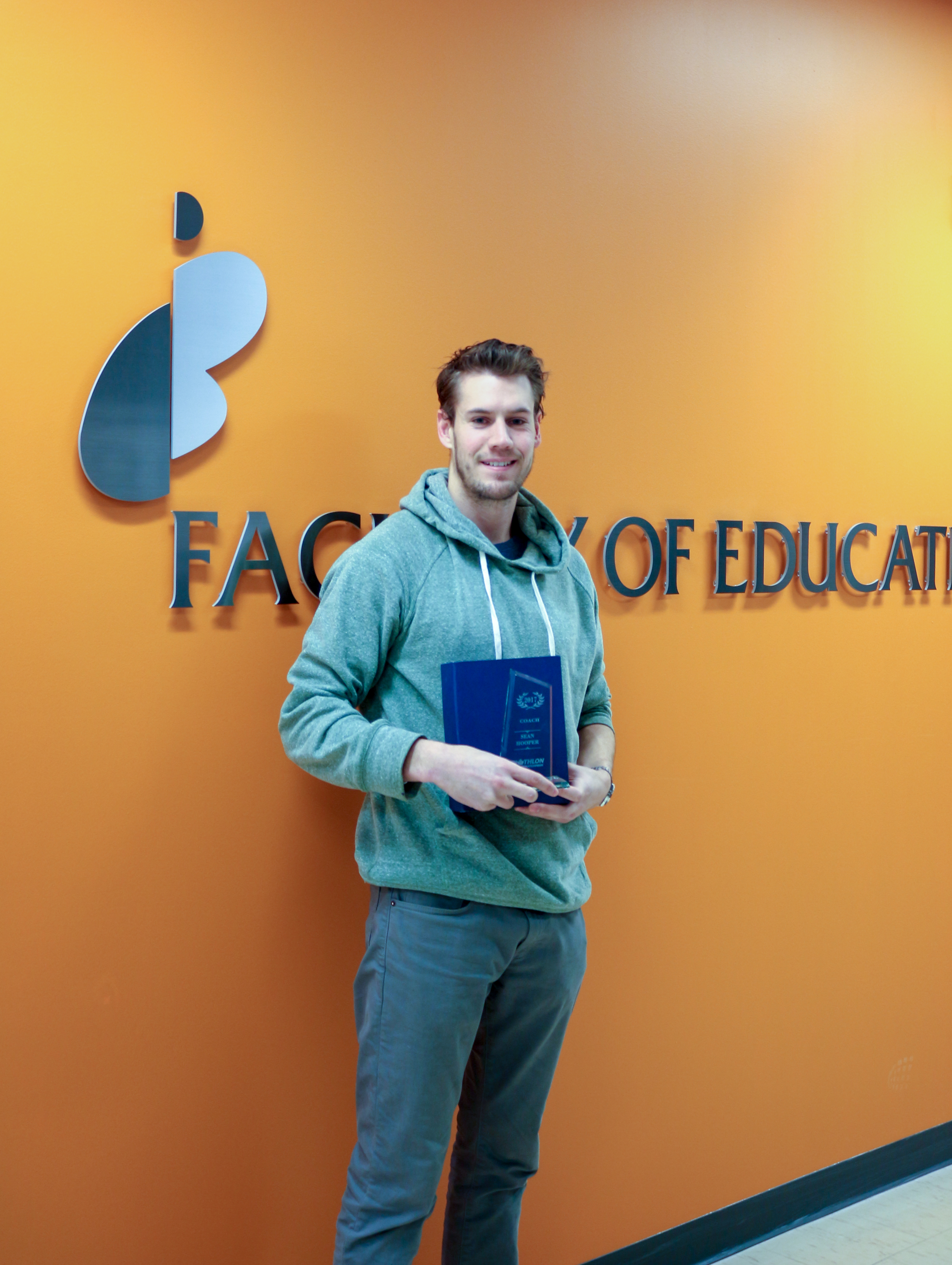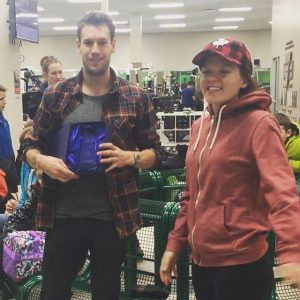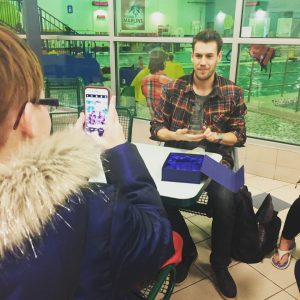
Sean Hooper, a 3rd-year Elementary Education student, was recipient of the 2017 Saskatchewan Triathlon Coach of the Year Award.
Sean Hooper, born and raised in Regina, has been coaching for six years with Regina Multisport Club’s Fundamentals, a program that he and his father started in 2012. “We noticed that a lot of kids, as young as 3 or 4, had never done anything like [triathlon races] and they were turned off by the experience, or really anxious and crying,” Sean explains, “We wanted FUNdamentals to be something that would prepare kids for an event like the Icebreaker, now called the Brent Gibson Memorial Icebreaker.” And, they wanted kids to have fun at the same time.
Sean and his father also hoped to change the way sport programs for children are offered: “At this age, the whole concept of the program that we would like to support is the long-term athlete development model.” Sean believes this model is why Canada has such a strong athletic community despite our population size. “We do so many sports as kids, and we have that physical literacy that we can apply to whatever we are passionate about later on.”
Triathlon itself incorporates cycling, swimming, and running. But Sean encourages the athletes to try other sports. “We only have practices twice a week. We are trying to move kids and parents to do multisports, such as hockey, basketball, and soccer….We have parents say, ‘my kid is really good at running,’ and they think that their child should focus on running. I say, ‘let them test the water; let them make the decision.’ That is where athletes come from; they have internal motivation,” Sean says.
Coaching is what led Sean into the field of education, though he didn’t start there. “I’ve been going to University for a while. I started in the Arts, went to Kinesiology, then I took some science. After third year, I sat down to figure out what I wanted to do. What is the career I want to go to every day? Education was what I decided on. I was in Kinesiology initially because I really enjoy coaching and fitness, but I thought more about the rudimentary aspect of coaching. It was about being able to see people grow based on my teachings, and about the relationship…that was really important to me and motivated me in my coaching,” says Sean.
Sean finds coaching influences his teaching philosophy. As with sports and needing to have a good experience, Sean says, “people learn best when the subject matter is associated with emotion. The lessons I remember best from school are when I did an activity or had some kind of experience from it.” For his 3-week pre-internship experience, Sean says, for “each of my lessons, I’ve tried to add an activity or something interesting so that students can take the information and apply it or gain some kind of experience from it.” Like sport literacy developed through multiple experiences, Sean views learning styles as something you develop in children: “The brain is malleable, and it is my job as a teacher to open avenues to different methods of thinking. I don’t think kids should be taught in one way, because they have potential to learn in many ways. Making those variations is what’s important instead of putting kids on a track where they are comfortable.”
As a competitive triathlete since the age of 13, Sean draws on former experiences with coaches to inform both his coaching and teaching practices. “Good coaches are humble and work in tandem with their athletes: they’re not too controlling and they communicate. I think an educator has to be the same. If you are too controlling in your classroom, then you are going to have students who resent you, or feel pressured, almost like they’re not the ones who want to do the learning. A good coach inspires the athlete to want to do better, and that comes from building relationships. When you establish a relationship, students are more likely to want to learn what you need to teach them.”
As with any relationship, respect is important. Sean says, “Respect is an abstract term; even saying it is kind of weird. It’s all about the subtleties in your actions, how you talk to people and how you respond to them and their questions and the way they perform.”
One of Sean’s favourite sayings comes from one of his former coaches, Steve Davis, “Do no harm.” As an athlete, Sean knows that you can be hard enough on yourself, and it is not necessary for a coach to get upset because you are doing that anyways.
Another life lesson Sean has drawn from his experience as an athlete is something another coach taught him, “Don’t focus on your pain; focus on your technique. Focus on something that is going to make you faster instead of the pain. When applied to life this means, if you are going through hard times, why focus on the negative things? That will just slow you down. Do something that helps you overcome the pain. That’s what I try to tell kids. Pain is going to happen. Never stop running. Never give up.”
In the past six years, Sean has coached more than 300 athletes. One of the athletes from his program made this comment, “Sean is a great coach. He makes our training fun by adding games and challenging us to go faster. He keeps us focused. I am much stronger and faster now and that is awesome.”(Quote from Regina Multisport Instagram account.) Sean received his award in March, 2018

